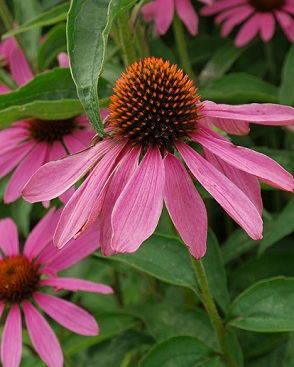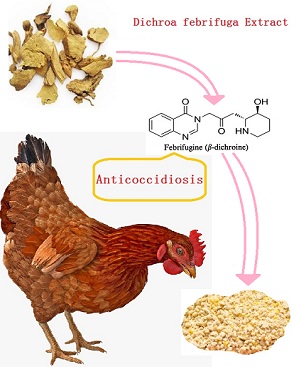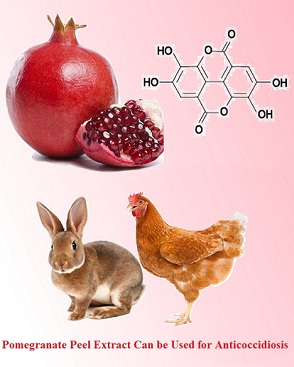- Plant-Based Protein
- Natural Plant Flavours
- Food and Dietary Supplement Ingredients
- Fruit Juice Powder
- Animal Nutrition Ingredients
- Water Soluble Ingredients
- Cosmetic Ingredients
- Unveiling the Therapeutic Potential of Rabdosia Rubescens: A Comprehensive Review
- What are the medicinal properties of Rabdosia Rubescens?
- Nutritional value of Orange Juice Powder compared to fresh orange juice.
- Processing Conditions and Nutritional Value of Orange Juice Powder
- Exploring the Versatility of Herbal Extracts in Food Flavors
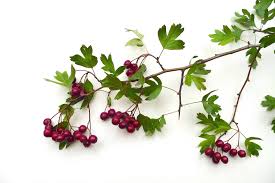
What are the health benefits of hawthorn leaf?
Welcome to our blog! Today, we are diving into the world of hawthorn leaf and uncovering its incredible health benefits. Whether you're a fan of herbal remedies or simply curious about natural alternatives, hawthorn leaf is definitely worth exploring.
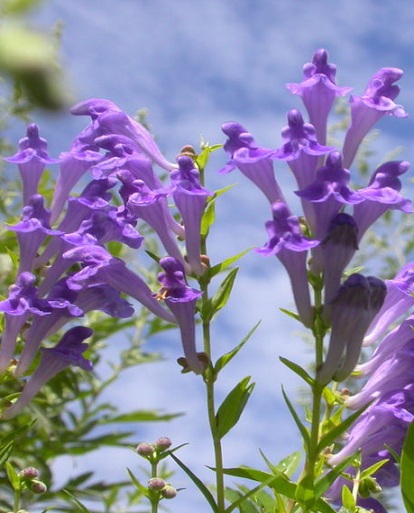

Skullcap Extract and benefits,side effect, uses,dosage
Skullcap(root of Scutellaria baicalensis) is a medicinal plant that’s long been used for healing purposes, particularly in Traditional Chinese Medicine.This herb has been used as an alternative medicine to help reduce inflammation, provide relief from spasms, stimulate blood flow in the pelvic region, help eliminate headaches, reduce fever and induce relaxation. Additionally, it’s been thought to improve conditions such as epilepsy, insomnia, hysteria and anxiety. Skullcap Extract is a dry concentrate made from the root of Scutellaria baicalensis. It is a fine yellowish brown powder with a characteristic odor and taste. Baicalin is its main active coupounds, which also has strong antibacterial and antivirus properties.
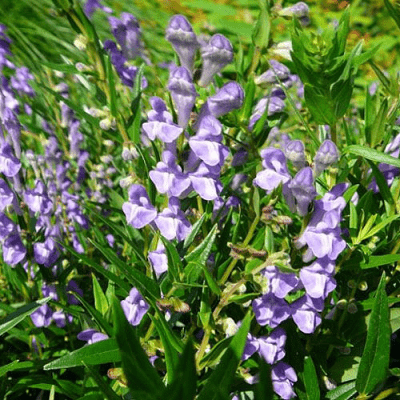
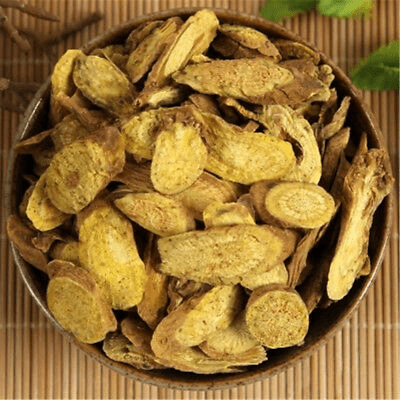
What you may get from us: If you're developing a product that contains plant active ingredients from Scutellaria baicalensis.Such as baicalin. I think you can find the information or products you need here.
Simple production process in our factory: After the plant is collected, raw material will be processed by solvent extraction, separation and purification, filtration, concentration, drying and other steps to form the final products. We may also design a prouction process based on your special requirements.
Through the physical and chemical processes, those compunds you don't want was removed, and the compunds preferred was accumulated. Which make the products achieve the best effects.
How to use Skullcap Root extract powder: What you need is just use our products to formulate your products. It can be mixed with your other ingredients directly to make premix products. It can also be directly used for filling capsules or making tablets. And if your dosage form is tincture or solution, It can also be suitable. Easy to say, our products are ready for Formula products.
|
Skullcap Root Extract |
||
|
CAS No of Baicalin. |
21967-41-9 |
|
|
Appearance |
Powder |
|
|
Color |
Greenish Yellow |
|
|
Partical size |
Normally pass through 80mesh |
|
|
Pack size |
25 kg per paper drum |
|
|
Purity of active compunds |
30% Baicalin. 80-85% Baicalin. |
By HPLC |
|
For pricing or more information, please call 86 29 88444632 or send an email to Sales@nutraherbsource.com.
|
||
General Information
Common Names of raw material: Baical, Huang Qin, Skullcap Root, Scullcap.
Latin Names: Scutellaria baicalensis Georgi
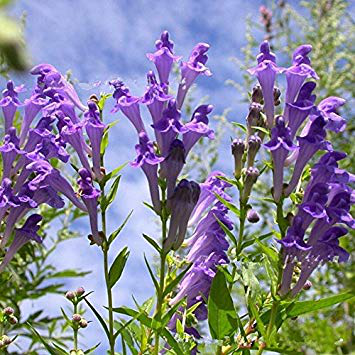
Plant Description:
Scutellaria baicalensis Georgi is a perennial herb. The rhizome of this plant is thick and fleshy, up to 2 cm in diameter, elongated and branched. The base of stem rises volatility. This base is 30–120 cm in height, 2.5–3 mm in diameter, blunt‐tetragonal shape, fine‐striped appearance, nearly glabrous or sessile to puberulent. And the colour of base is green or purplish. The leaves are lanceolate to linear‐lanceolate, 1.5–4.5 cm in length and 0.5–1.2 cm in width. The top of the leaf is dark green, and the colour below is lighter. This petiole is short, about 2 mm long with abdomen concave and convex, and puberulent. The terminal raceme borne on stems and branches and has a length of 7–15 cm. It is often aggregated into panicles at the top of stems. Its corolla is purple, purple–red and blue. And its length is 2.3–3 cm. There are four pairs of stamens. The filaments are flat, the styles are slender, the disc is ring‐shaped, and the ovary is brown. The fruits are hard, ovoid, dark brown with a tumour, and 1.5 mm in height and 1 mm in diameter.
Constituents of Skullcap (Scutellaria baicalensis).
Phytochemical analyses have detected and quantified the flavonoids baicalin, baicalein, scutellarin, wogonin, and the human neurohormones, melatonin and serotonin, in leaf and stem tissues from Scutellaria baicalensis. The extraction of dried slices of Scutellaria baicalensis with ethanol has yielded a number of chemical constituents, including various glucuronides and flavones.
|
Baicalin |
|

Also called: Baicalein 7-O-glucuronide
5,6-Dihydroxy-4-oxygen-2-phenyl-4H-1-benzopyran-7-beta-D-glucopyranose acid
|
21967-41-9 |
|
|
C21H18O11 |
|
|
446.36 g/mol |
Traditional uses
In China, Scutellaria baicalensis is still an important traditional Chinese medicine with the functions of clearing away heat and dampness, purging fire and detoxification.
Health Benefits of Skullcap Root Extract
1. Lowers Fever Caused from the Flu
According to a 2014 study by the Korean Food Research Institute, skullcap may help reduce fever. Tests were conducted by administering the herb to subjects who had a food allergy.
Temperature was monitored, and results indicated that the group given the skullcap demonstrated a drop in body temperature.
Studies also indicate that some severe cases of illness involving fever may be treated with skullcap. Combined with other medicinal herbs, such as fried bitter apricot seeds and unprocessed rhubarb, it’s been shown to help reduce high fever, cough and shortness of breath while reducing heart palpitations, anxiety and irritation.
2. Reduces Risk of Heart Disease
A recent study aimed to investigate the cardioprotective effects of baicalein, which comes from skullcap roots, suggests that the plant may help to protect heart health.
Subjects were injected with isoproterenol (ISO), which induced acute myocardial infarction. Pretreatment with baicalein greatly reversed alterations induced by the ISO with results showing higher levels of antioxidant defense enzymes.
Overall, the study revealed cardioprotective effects of baicalein, giving evidence that pretreatment could prevent, and possibly terminate, some heart disease conditions, such as myocardial infarction.
3. Reduces Inflammation
Chinese scutellaria has some pretty effective anti-inflammatory properties. Many who suffer with arthritis and inflammatory bowel diseases are known for using skullcap as a home remedy.
A 2007 study published in the Journal of Alternative and Complementary Medicine evaluated selected herbs for their ability to protect neuronal cells. Researchers found that ginger and turmeric extracts exhibited the most protective effects, followed by skullcap, ginkgo biloba, Chinese cinnamon and Korean rhubarb.
Researchers concluded that these selective herbs may be potentially important resources to discover natural drug candidates against the onset of Alzheimer’s disease.
4. Calms Anxiety as a Nerve Tonic
For more than two centuries, American skullcap has been used by both Americans and Europeans as a nerve tonic to help treat anxiety. Research has shown that the plant contains “anxiolytic activity” in animals and humans.
Oxidative stress affects some brain-related diseases, such as anxiety, Alzheimer’s disease, depression and Parkinson’s disease, yet research indicates that bioactive compounds found in medicinal plants, such as skullcap, may neutralize and even eliminate toxic free radicals.
When this occurs, oxidative stress is greatly reduced. Skullcap for anxiety may work because of its ability to provide significant antioxidant effects, which could make it a great option for reducing anxiety.
5. Has antibacterial and antiviral effects
Scutellaria (S.) barbata — also known as barbat skullcap — is another species with medicinal properties. Studies indicate that it has powerful antiviral and antibacterial effects.
One test-tube study sampled over 30 Chinese herbs and found that only S. barbata extract demonstrated 100% antibacterial activity against Acinetobacter baumannii (XDRAB), a bacterium that is a leading cause of pneumonia in hospitalized patients.
Furthermore, this extract showed better antibacterial effects than colistin, a common antibiotic.
The same study demonstrated that S. barbata was also effective in reducing XDRAB bacterial load in the lungs of mice, compared to a control group.
What’s more, Chinese skullcap is purported to have antibacterial effects and is a component of an herbal mixture called Candbactin, a popular natural remedy used to treat intestinal bacterial overgrowth.
6. May Help Fight Cancer Cells
Research shows that Chinese skullcap extract is toxic to cancer cells, such as brain tumor cells, prostate cancer cells, and head and neck squamous cell carcinoma cell lines. Studies indicate that aqueous extracts suppressed the growth of lymphoma and myeloma cells.
It’s believed that certain flavones, which are antioxidants within the plant, are responsible for these anticancer effects, ultimately inhibiting the growth. This may happen due to the free radical scavenging characteristics it contains, which prevents viral infections.
One of these flavones is known as baicalein. In a study published in the Beijing Science Bulletin, it appeared as though the baicalein did not cause any mutations, which is a serious problem of many conventional anticancer drugs available today.
Another study published in the International Journal of Molecular Medicine investigated the effects of the extract from skullcap on fibrosarcoma (a highly metastatic cancer of the connective tissue) and showed possible anticancer characteristics.
The rate at which cancer cells grew was significantly suppressed by treatment through apoptosis, and the volume and weight of tumors were greatly reduced as well. It appears as though the plant helped prevent further inhibition and migration of cancer cells, indicating its potential as a natural cancer treatment.
Precautions or side effects:
Skullcap has been documented as causing blood sugar levels to drop, raising the risk of hypoglycemia. If you’re diabetic, it’s recommended that you avoid Chinese skullcap. Consult your physician.
Recommended dosage
200 to 800 mg once in the morning and at night
- Prev:Agrimonia Extract, Avian disease,Antibacterial, Antidiarrheal,Anticoccidiosis in poultry industry
- Next:Common ivy extract/Hedera helix Extract and benefits,side effect, uses



